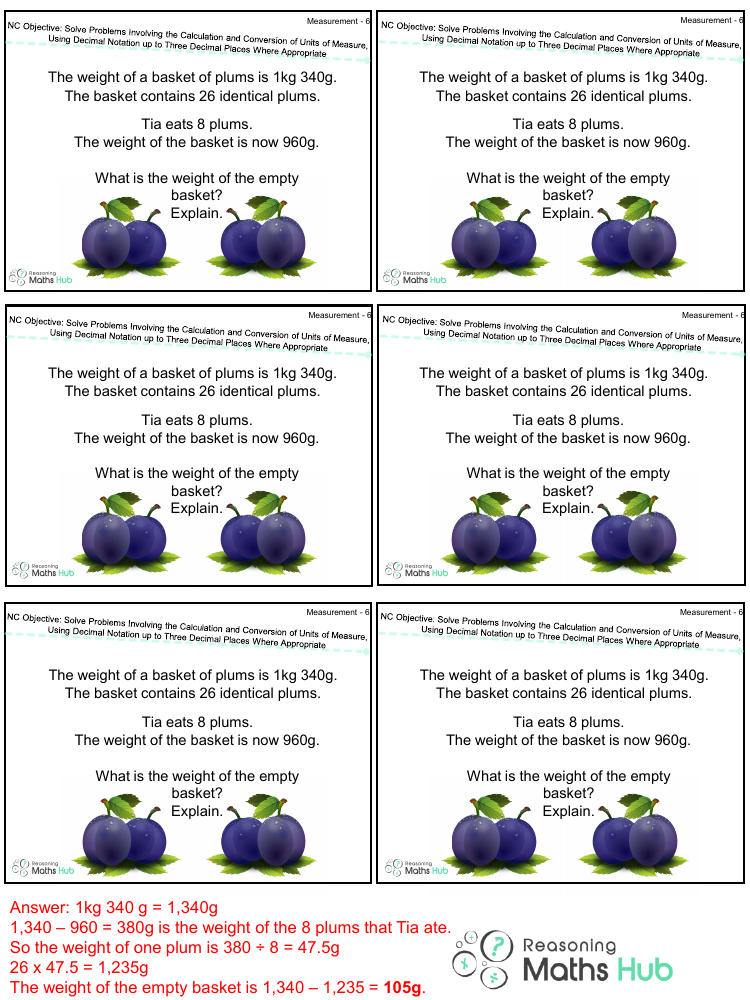Solve problems involving the calculation and conversion of units of measure - Reasoning

Maths Resource Description
To determine the weight of the empty basket, we need to start by understanding the total weight of the basket with the plums. Initially, the basket with plums weighs 1kg 340g, which is equivalent to 1340g when converted to grams. Tia eats 8 of the 26 identical plums, resulting in the basket weighing 960g. By subtracting the new weight from the original weight (1340g - 960g), we find that the weight of the 8 plums Tia ate is 380g. To find the weight of a single plum, we divide this by the number of plums eaten, which is 380g ÷ 8, giving us 47.5g per plum.
Now, since the basket originally contained 26 plums, we can calculate the total weight of the plums by multiplying the weight of one plum by the number of plums, which is 26 x 47.5g, equating to 1235g. To find the weight of the empty basket, we subtract the weight of all the plums from the original total weight of the basket with plums, which is 1340g - 1235g, resulting in 105g. Therefore, the weight of the empty basket is 105g. This methodical approach to the problem allows us to understand the relationship between the total weight, the weight of the contents, and the weight of the container itself.
